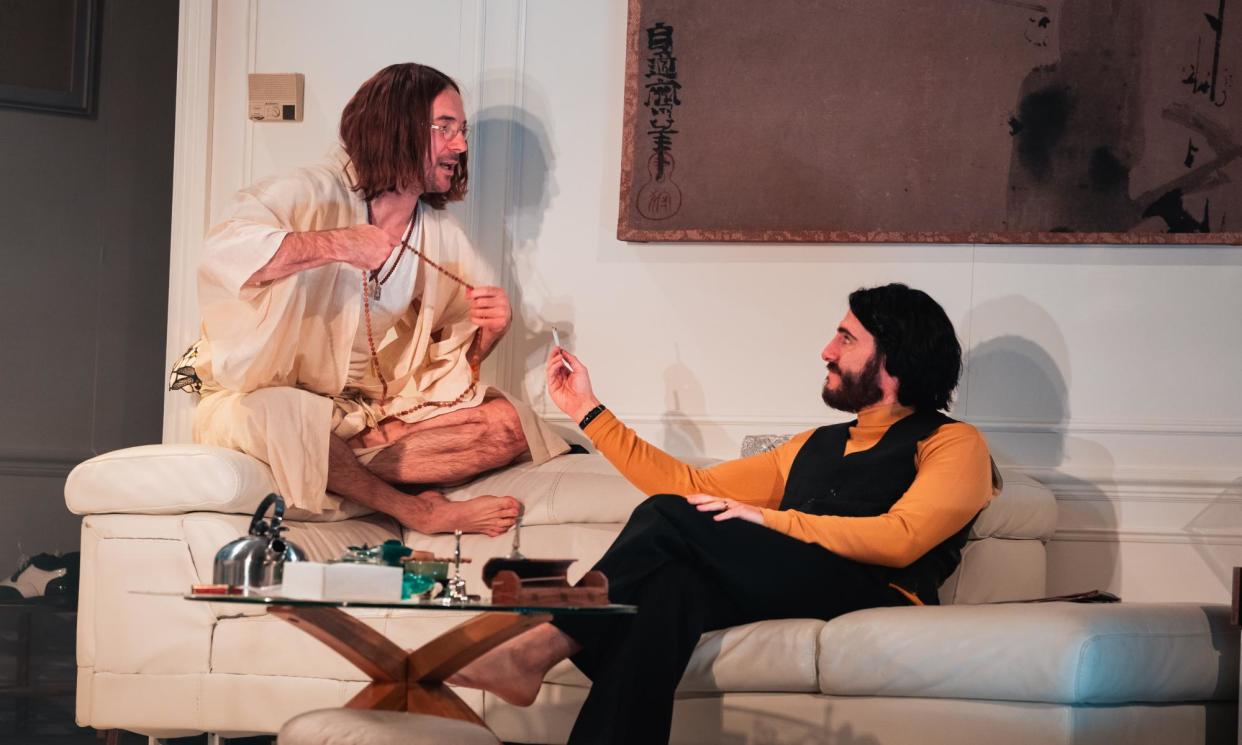Two of Us review – Lennon and McCartney come together for humdrum reunion

What went down during the penultimate face-to-face meeting between John Lennon, then a stay-at-home dad in granny specs and dressing gown, and Paul McCartney, back at No 1 with Wings, in New York in April 1976? And how close did they really come to reuniting musically that evening in Lennon’s apartment?
Mark Stanfield pared back this real-life scenario in 2000 for the TV movie Two of Us. (Most accounts have Linda McCartney and Yoko Ono also in attendance.) For the new stage version, Stanfield, Richard Short, and Barry Sloane (who also plays Lennon) have streamlined it even further, removing an incognito walkabout sequence on the advice of director Scot Williams. The action now stays within Lennon’s apartment, with its white piano and its view of the Manhattan skyline. Only once do the duo venture outside. “Remember the last time we were on a rooftop together?” sighs McCartney.
The first hurdle for any speculative celebrity-based drama is the strength of the mimicry, and it is one that Two of Us easily clears. Sloane nails Lennon’s relish for wordplay as he reflects on life on “the island of Madhatter” or imagines the reunited Beatles “back by popular dementia”. Jay Johnson makes an uncanny McCartney in jet-black beard and mustard rollneck, all bopping buoyancy and groovy use of the word “dig”.
But Insignificance this is not, and the fantasy never takes flight. Neither character does much beyond rehashing the past (“You were spending all your time with Yoko and I felt like I was losing me best mate”) or stating the obvious (“There’s a lot of stuff that hasn’t been resolved”).
One interesting note is the persistent suggestion of latent homosexuality, culminating in Lennon planting a brutal kiss on his friend’s lips. A Judas kiss, even. The play may end in hugs and healing, but it neglects to mention that McCartney returned the next day only for Lennon to tell him: “It’s not 1956, and turning up at the door isn’t the same any more.”
In its idealised rapprochement and its therapy-session blandishments (“I see a frightened man who doesn’t realise how beautiful he is”), Two of Us feels more like fan fiction than drama. Couldn’t they just Let It Be?
At Watford Palace theatre until 21 September


